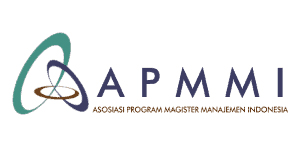Optimization of Green Marketing to Increase Consumer Awareness and Attitude towards Eco-Friendly Housing in Surakarta
DOI:
https://doi.org/10.30996/jmm17.v12i1.12701Abstract
Purpose
This study aims to investigate how elements such as green perceived value, green products, and environmental concern influence consumer attitudes while examining the role of consumer awareness of green products in promoting environmentally friendly purchasing behavior.
Design/Methodology/Approach
Data were collected from 111 respondents using convenience and purposive sampling methods. The relationships between green perceived value, green products, environmental concern, green product awareness, and consumer attitudes were analyzed using Partial Least Squares Structural Equation Modeling (PLS-SEM). Validity and reliability were assessed through convergent and discriminant validity, while hypothesis testing was conducted using the bootstrapping method.
Findings
The findings reveal that green perceived value and environmental concern positively influence consumer attitudes toward purchasing eco-friendly housing. However, green product awareness does not significantly moderate these relationships. Low consumer awareness limits the positive impact of green value and environmental concern, underscoring the need for enhanced consumer education to foster pro-environmental purchasing behavior.
Originality/Value
This study provides a novel analysis of green product awareness as a moderating factor in green marketing and consumer attitudes, focusing on non-subsidized housing in Surakarta. The findings offer valuable insights for developers to create effective marketing strategies and for policymakers to expand green building certification programs and promote the adoption of eco-friendly housing solutions by emphasizing the benefits of environmentally friendly products.
Downloads
Downloads
Published
How to Cite
Issue
Section
License
Authors who publish to JMM17: Jurnal Ilmu Ekonomi Dan Manajemen agree to the following terms:
- Authors transfer the copyright and grant the journal right of first publication with the work simultaneously licensed under a Creative Commons Attribution-ShareAlike 4.0 International License.. that allows others to share the work with an acknowledgement of the work's authorship and initial publication in this journal.
- Authors are able to enter into separate, additional contractual arrangements for the non-exclusive distribution of the journal's published version of the work (e.g., post it to an institutional repository or publish it in a book), with an acknowledgement of its initial publication in this journal.
- Authors are permitted and encouraged to post their work online (e.g., in institutional repositories or on their website) prior to and during the submission process, as it can lead to productive exchanges, as well as earlier and greater citation of published work (See The Effect of Open Access)












